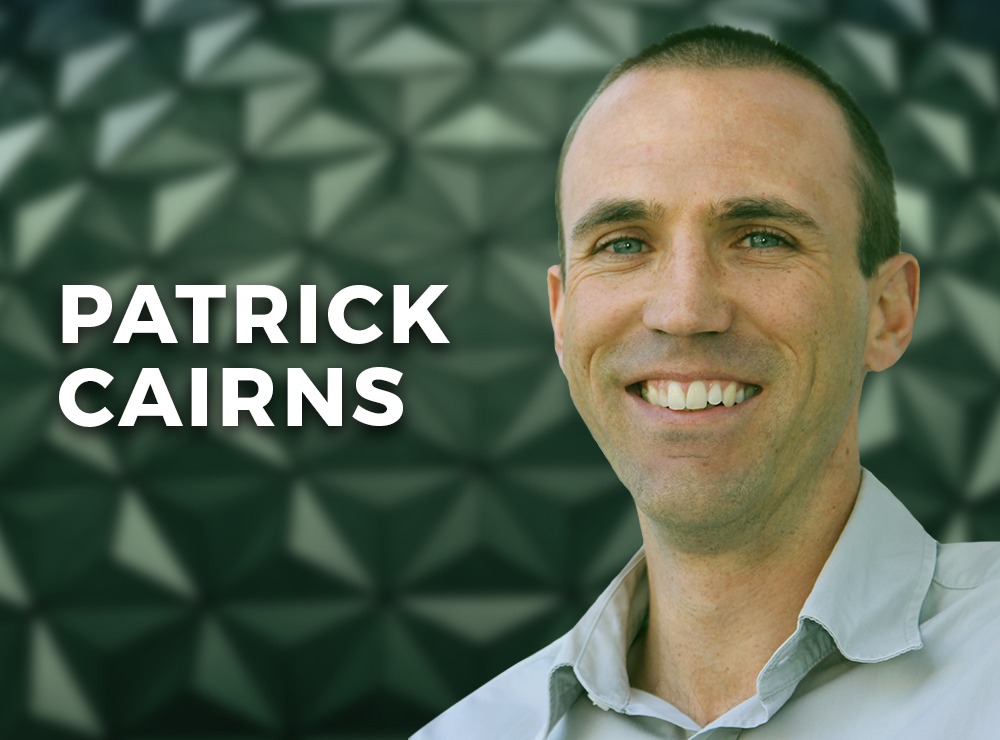
By PATRICK CAIRNS
In today’s world, there is a lot of black-or-white thinking going on. There are many areas where it seems you only have two choices.
Consider Brexit, vaccine passports and bitcoin as just three examples. In all three cases, the arguments for and against don’t leave much room for a middle ground.
In psychology, this is known as binary thinking — where something is either good or bad. It is either helpful, or harmful. You are either in, or out.
As humans, it feels safe to think this way. The world is an incredibly complex place, so it is much more comfortable to reduce things to just two poles. That is much simpler for us to deal with, and provides us with a sense of certainty.
What about the grey?
The problem, however, is that this kind of thinking lacks accuracy. The world is full of grey areas, and the truth often lies in the middle of two extremes.
The political environment in the US is an excellent example. Republicans and Democrats increasingly appear to be polar opposites. If one party supports a particular policy or approach, the other will almost inevitably oppose it.
Yet, polling by Gallup has consistently found since 2007 that a majority of Americans do not feel that their views are being represented by the two major parties. Sixty-two percent of US adults now feel that the “parties do such a poor job representing the American people that a third party is needed”.
That number hasn’t been below 50% for nearly 15 years.
Binary investors
Unfortunately, this kind of thinking is prevalent among investors as well. Since markets are such complex places, it is much easier to be binary.
We feel that we must pick certain funds, or stocks or sectors. And we must stay away from others. If we feel we are in the “right” funds or stocks, that gives us some comfort.
Often these choices are determined by the biggest binary point of all – whether we are out-performing or under-performing whatever our perceived benchmark is. That could be an index, or it could be our mates at the pub.
What do you really need?
However, what almost every investor requires is not outperformance. Very few people are investing their money simply for the thrill of making more money.
The vast majority of us are building our wealth for a purpose — most often to support ourselves later in life when we are no longer working full-time.
Vitally, this implies investing for a particular outcome. It is not simply about investing for the best possible return, but rather investing in a way that will give us the best possible chance of meeting our objective at the lowest possible risk.
This is not a binary question, mostly because it is such a long-term endeavour. Over 30 or 40 even 50 years, your portfolio can experience any number of ups and downs. At some points you will undoubtedly seem better off than others.
What is important, however, is knowing where you are on that journey, whether you are moving closer, and if you are still maximising your chances of getting where you want to be.
A different kind of thinking
This is directional, rather than binary thinking. It is knowing where you are pointing, why you are going that way, and understanding that it won’t be a straight path.
It does not come down to choosing one thing or the other. It is a complex problem that requires planning, forethought and potentially some adjustment along the way.
This is something that is very difficult to do alone. Most of us would like to be in good physical shape, for example. However, it is a minority that consistently eat well and work out without motivation from someone else. That is why there is a huge market for fitness classes, gym instructors and yoga teachers.
Getting help
With money, which can be so emotive, it can sometimes be even more difficult. That is why getting good advice is invaluable. Knowing that we have someone who is keeping us pointed in the right direction will help us negotiate the times when things don’t feel so good is a vital part of travelling the long-term investment journey.
This won’t always be simple. It can’t always be reduced to binary choices. But we can still get clarity from knowing what the plan is, and how well we are meeting it.
As sociologist and author Bob Johansen says:
“Clarity means being very clear about the direction you want to go, but very flexible about how you will get there.”
One of South Africa’s most respected financial journalists, PATRICK CAIRNS is a trusted commentator on the world of investments and the quirks of behavioural finance. Over more than a decade he has built a reputation for keeping the industry honest, and putting the interests of investors first.
Here are some more articles by Patrick Cairns:
Don’t let your investments go the way of the CD
Can you change your mind about money?
Should you invest in a dividend ETF?
Can you measure your financial wellbeing?
PREVIOUSLY ON TEBI
The biggest crash in world history
Gene Fama on an unsung benefit of indexing
What if the last 40 years had turned out differently?
Invest your way to financial freedom
FIND AN ADVISER
Investors are far more likely to achieve their goals if they use a financial adviser. But really good advisers with an evidence-based investment philosophy are sadly in the minority.
If you would like us to put you in touch with one in your area, just click here and send us your email address, and we’ll see if we can help.
© The Evidence-Based Investor MMXXI







